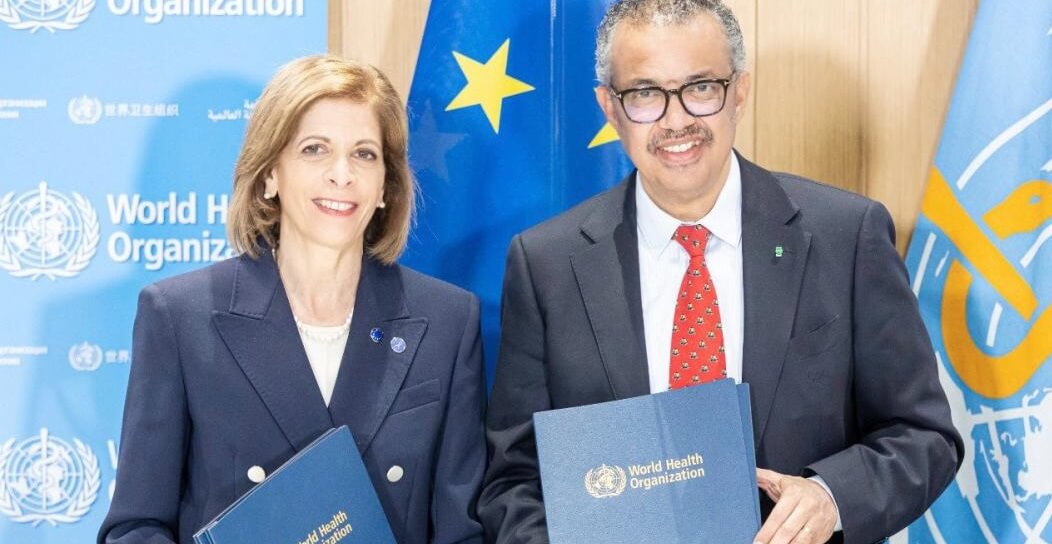WHO Partners EU To Create Global Digital Tool Against Future Pandemics
The World Health Organization (WHO) has announced that it is collaborating with the European Union(EU) to launch a digital health initiative to protect global citizens from ongoing and future health threats.
WHO disclosed this on Monday in a live broadcast in Geneva, Switzerland.
Advertisement
It said it will adopt the EU system of digital Covid-19 certification to establish a global system that will aid in facilitating cross-border mobility and protect citizens worldwide from current and future health threats, including pandemics.
WHO said the milestone is its first building block on the Global Digital Health Certification Network (GDHCN) that will create a wide range of products to deliver better health for all.
According to WHO Director General, Dr. Tedros Adhanom Ghebreyesus, the global health agency is building on the EU’s highly successful digital certificate network to offer all its member states access to an open-source digital health tool which is based on”the principles of equity, innovation, transparency, and data protection and privacy.”
He said the new digital health products in development aim to help people everywhere in the world to receive quality health services quickly and more efficiently.
Advertisement
WHO said that based on the EU Global Health Strategy and the WHO’s global strategy on digital health, the initiative follows the November 30, 2022 agreement by both parties to enhance strategic cooperation on global health issues which further boosts the multilateral system with WHO at its core, powered by a strong EU.
Also, the EU Commissioner for Health and Food Safety, Stella Kyriakides said the partnership is a crucial step in implementing the EU’s digital action plan for global health strategy by utilizing its best practices to advance digital health standards and interoperability to benefit those most in need of it globally.
“As the directing and coordinating authority on international health work, there is no better partner than the WHO to advance the work we started at the EU and further develop global digital health solutions,” she said.
Furthermore, according to the EU Commissioner for Internal Market, Thierry Breton, with 80 countries and territories linked to the EU Digital COVID-19 Certificate, the EU has established a global standard that has facilitated both international travel and tourism in addition to serving as a crucial tool in the fight against the pandemic.
He added, “I am pleased that the WHO will build on the privacy-preserving principles and cutting-edge technology of the EU certificate to create a global tool against future pandemics.”
Advertisement
WHO stated that digital COVID-19 certifications have been a crucial component of the EU’s efforts to combat the pandemic.
It said the EU Digital Covid-19 Certificate, also known as EU DCC, was developed to promote free movement inside its boundaries and link non-EU nations using open-source technology and standards and has since grown to be the most popular option globally.
WHO noted that with this partnership, it will facilitate the process globally under its structure to allow all benefit from the convergence of the certificates which includes standard-setting and validation of digital signatures to prevent fraud. WHO, however, said individual personal data will be exclusively in governments domain worldwide.
It said the landmark of the global WHO system will become operational in June 2023 to be progressively developed in the coming months.
As part of long-term digital collaboration to deliver better health for all, WHO said the”partnership will work to technically develop the WHO system with a staged approach to cover additional use cases, which may include, for example, digitization of the International Certificate of Vaccination or Prophylaxis. Expanding such digital solutions will be essential to deliver better health for citizens across the globe. “
WHO said the cooperation is to ensure equitable opportunities for the participation of those most in need, especially low and middle-income countries.



